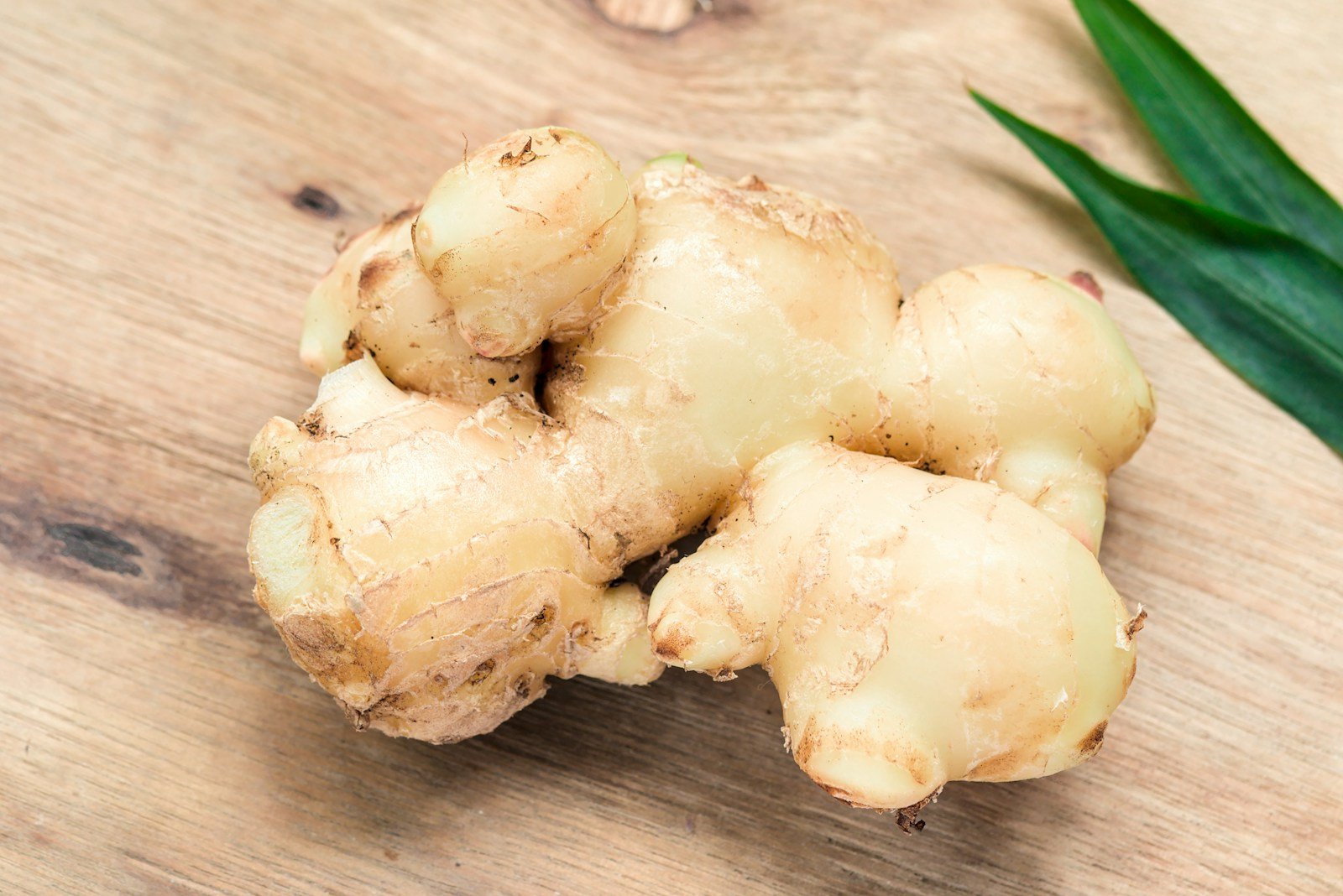Introduction
Nestled within the vibrant tapestry of natural remedies, ginger stands out as a true powerhouse, offering a wealth of potential benefits that have been celebrated across cultures for centuries. From its pungent aroma to its distinctive flavor, this humble rhizome has captured the hearts and minds of individuals seeking holistic solutions for a wide range of ailments.
Ginger’s journey into the realm of natural medicine can be traced back to ancient civilizations, where it was revered for its therapeutic properties and incorporated into traditional healing practices. Today, as modern science delves deeper into the intricacies of plant-based remedies, ginger has emerged as a subject of intense research, with mounting evidence supporting its potential to alleviate various health concerns.
In this comprehensive article, we will embark on a captivating exploration of the numerous benefits associated with ginger. From its anti-inflammatory prowess to its role in digestive health and nausea relief, we will uncover the scientific underpinnings and traditional wisdom that have contributed to ginger’s enduring popularity as a natural remedy.
In-depth Exploration of Key Points
Ginger: A Rich History and Cultural Significance
Before delving into the myriad benefits of ginger, it is essential to acknowledge its rich historical and cultural significance. Originating in Southeast Asia, ginger has been an integral part of traditional medicine systems for millennia, revered for its potent healing properties and versatile applications.
In ancient Ayurvedic practices, ginger was hailed as a panacea, capable of addressing a wide array of ailments. Similarly, traditional Chinese medicine embraced ginger as a powerful tonic, renowned for its ability to dispel dampness and promote circulation. The Greeks and Romans, too, recognized the value of ginger, utilizing it for its digestive and warming properties.
Beyond its medicinal uses, ginger has played a pivotal role in culinary traditions across the globe. Its distinctive flavor and aroma have graced countless dishes, adding depth and complexity to a myriad of culinary delights. From curries and stir-fries to baked goods and beverages, ginger has proven itself to be an indispensable ingredient in countless cultural cuisines.
Ginger’s Anti-Inflammatory Properties
One of the most widely recognized benefits of ginger lies in its potent anti-inflammatory properties. Numerous scientific studies have explored the mechanisms by which ginger exerts its anti-inflammatory effects, shedding light on its potential to alleviate various inflammatory conditions.
The key to ginger’s anti-inflammatory prowess lies in its active compounds, particularly gingerol and shogaol. These bioactive compounds have been found to inhibit the production of inflammatory molecules, such as prostaglandins and leukotrienes, thereby reducing inflammation and associated pain.
Research has demonstrated ginger’s potential in managing conditions like osteoarthritis, rheumatoid arthritis, and muscle soreness. For instance, a study published in the Journal of Pain found that consuming ginger extract reduced muscle pain associated with exercise-induced muscle injury. Additionally, ginger has shown promise in alleviating menstrual cramps and migraines, which are often rooted in inflammatory processes.
Ginger for Digestive Health
Historically, ginger has been revered as a potent ally in promoting digestive health, and modern research has reinforced its effectiveness in this domain. The root’s ability to soothe the digestive tract and alleviate various gastrointestinal issues has made it a go-to remedy for countless individuals seeking natural relief.
One of the primary mechanisms by which ginger supports digestive health is through its carminative properties. These properties help to reduce gas and bloating by promoting the expulsion of intestinal gas, providing relief from discomfort and distension.
Furthermore, ginger has been found to stimulate the production of digestive enzymes, facilitating the breakdown and absorption of nutrients. This can be particularly beneficial for individuals suffering from conditions like indigestion, constipation, or irritable bowel syndrome (IBS).
Additionally, ginger’s anti-inflammatory effects may play a role in alleviating inflammatory bowel diseases (IBD) such as Crohn’s disease and ulcerative colitis. However, it’s important to note that while ginger may offer relief for mild to moderate cases, individuals with severe IBD should consult with their healthcare providers for appropriate treatment plans.
Ginger: Nature’s Remedy for Nausea
Ginger’s ability to alleviate nausea and vomiting has been well-documented, making it a go-to remedy for a variety of conditions associated with these unpleasant symptoms. From morning sickness during pregnancy to chemotherapy-induced nausea and motion sickness, ginger has proven its efficacy time and again.
The mechanisms behind ginger’s anti-nausea properties are multifaceted. Firstly, its active compounds, such as gingerol and shogaol, have been found to interact with the body’s serotonin receptors, which play a crucial role in regulating nausea and vomiting.
Additionally, ginger’s ability to promote digestive health and reduce inflammation may contribute to its anti-nausea effects. By soothing the digestive tract and reducing inflammation, ginger can help alleviate the underlying causes of nausea in certain conditions.
Numerous studies have explored the effectiveness of ginger in managing nausea and vomiting. For instance, a meta-analysis published in the journal Nutrition reviewed several studies on the use of ginger for nausea and vomiting during pregnancy, concluding that it was significantly more effective than placebo in reducing these symptoms.
Other Potential Benefits of Ginger
While ginger’s anti-inflammatory, digestive, and anti-nausea properties have garnered widespread recognition, this remarkable root offers a plethora of additional potential benefits that continue to captivate researchers and health enthusiasts alike:
- Cardiovascular Health: Ginger’s antioxidant and anti-inflammatory properties may play a role in promoting cardiovascular health by reducing oxidative stress and improving blood circulation. Some studies have suggested that ginger may help lower blood pressure and cholesterol levels, although more research is needed in this area.
- Blood Sugar Regulation: Emerging research indicates that ginger may possess anti-diabetic properties, potentially due to its ability to enhance insulin sensitivity and promote glucose metabolism. However, more clinical trials are necessary to fully understand ginger’s potential in managing diabetes and blood sugar levels.
- Cognitive Function: Certain compounds found in ginger, such as shogaols, have been shown to exhibit neuroprotective effects in animal studies. This has sparked interest in exploring ginger’s potential role in improving cognitive function and mitigating the risk of neurodegenerative diseases like Alzheimer’s and Parkinson’s.
- Cancer Prevention: Preliminary research has suggested that ginger may possess anti-cancer properties, potentially due to its ability to inhibit the growth and spread of cancer cells. However, more extensive research is needed to fully understand ginger’s potential in cancer prevention and treatment.
It’s important to note that while these potential benefits are promising, more extensive research is still needed to fully understand the mechanisms and practical applications of ginger in these areas.

Additional Resources and Further Reading
If you’re interested in exploring the benefits of ginger further, here are some additional resources and areas of interest:
- Herbal Medicine and Traditional Practices: Delve into the rich history and traditional uses of ginger in various cultural contexts, such as Ayurveda, traditional Chinese medicine, and indigenous healing practices.
- Phytochemistry and Pharmacology: Explore the scientific literature on the phytochemical constituents of ginger and their potential pharmacological actions and mechanisms.
- Culinary Applications: Discover the myriad ways in which ginger can be incorporated into your culinary repertoire, from savory dishes to baked goods and beverages.
- Dietary Supplements: Learn about the various forms of ginger supplements available, including extracts, capsules, and powders, and understand the factors that influence their quality and efficacy.
Frequently Asked Questions
-
Q: Is ginger safe for consumption?
A: Ginger is generally considered safe for consumption when consumed in moderate amounts as a food or supplement. However, it’s important to consult with a healthcare professional before taking large or medicinal doses, especially if you have underlying health conditions or are taking medications.
-
Q: Can ginger interact with medications?
A: While ginger is generally safe, there is a potential for it to interact with certain medications, such as blood thinners, diabetes medications, and medications that are metabolized by the liver. It’s crucial to disclose any supplement use to your healthcare provider to avoid potential adverse interactions.
-
Q: How much ginger should I consume to experience its benefits?
A: The recommended dosage of ginger can vary depending on the specific condition and the form of ginger being consumed. For general health benefits, many experts suggest consuming 1-2 grams of fresh ginger per day. However, it’s essential to consult with a healthcare professional for personalized dosage recommendations based on your individual needs and health status.
Practical Tips and Actionable Advice
If you’re ready to harness the power of ginger and incorporate it into your daily routine, here are some practical tips and actionable advice:
- Fresh is Best: Whenever possible, opt for fresh ginger root over its powdered or dried counterparts. Fresh ginger retains a higher concentration of its potent active compounds and offers a more vibrant flavor and aroma.
- Grate or Slice: To maximize the release of ginger’s beneficial compounds, grate or finely slice the root before using it in recipes or beverages. This increased surface area allows for better extraction and a more potent ginger flavor.
- Incorporate into Your Diet: Explore creative ways to incorporate ginger into your daily meals and snacks. Add grated ginger to stir-fries, marinades, smoothies, or baked goods for a zesty kick. You can also brew a soothing ginger tea by steeping fresh ginger slices in hot water.
- Try Ginger Supplements: If you find it challenging to incorporate fresh ginger into your diet regularly, consider taking high-quality ginger supplements in the form of capsules, tinctures, or extracts. Always consult with a healthcare professional for appropriate dosage recommendations.
- Combine with Other Natural Remedies: Ginger can be a potent addition to a holistic wellness routine when combined with other natural remedies and lifestyle practices. For instance, pairing ginger with turmeric may enhance their anti-inflammatory effects, while incorporating ginger into a balanced diet and regular exercise routine can promote overall well-being.
Conclusion
Throughout this comprehensive exploration of ginger’s many benefits, one thing has become abundantly clear: this unassuming root is a true marvel of nature, a veritable treasure trove of healing potential. From its rich historical and cultural significance to its scientifically validated therapeutic properties, ginger has proven itself to be a versatile ally in our pursuit of holistic well-being.
Whether you seek relief from inflammation, digestive discomfort, or nausea, or aspire to bolster your overall health and vitality, ginger offers a natural and time-honored solution. Its anti-inflammatory properties, digestive-soothing effects, and anti-nausea prowess have earned it a well-deserved place in the pantheon of nature’s most powerful remedies.
As we continue to unravel the mysteries of plant-based medicine, ginger stands as a shining example of the vast potential that lies within the natural world. Its myriad benefits serve as a testament to the wisdom of traditional healing practices and the importance of integrating traditional knowledge with modern scientific inquiry.
So, embrace the ginger miracle and let this remarkable root guide you on a journey towards holistic wellness. Incorporate it into your culinary adventures, explore its therapeutic applications, and revel in the knowledge that nature has provided us with a powerful ally in our quest for optimal health and well-being.
After all, the true power of ginger lies not only in its ability to soothe and heal but also in its capacity to inspire us to connect with the abundant resources that nature so graciously offers. Unlock the ginger miracle, and embark on a path towards a more vibrant, resilient, and fulfilling life.


Leave a Reply